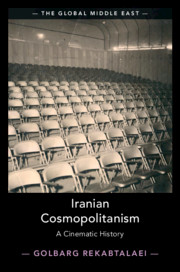Much of the scholarship on the history of Iranian cinema considers film spectatorship in the first three decades of the 20th century as a leisure practice with origins in royalist and elitist entertainment forms. However, a close reading of archival material from this era reveals that cinema's significance extended well beyond its role as a pastime, as it became engaged in the governance of the self and disciplinary strategies of the state in Iran's experience of modernity in the early 20th century. In this article, I reperiodize the history of cinema in Iran by demonstrating the entanglement of cinema in popular nationalist discourses on education prior to cinema's institutionalization in the 1930s. Drawing on newspaper articles, film announcements, official documents, and poems, I show how, despite the absence of a centralized cinema institution in the 1910s and early 1920s, cosmopolitan citizens in dialogue with global trends promoted cinema as a means for the governance of selfhood and moral edification in the service of national progress. With the appropriation of cinema by the Pahlavi state in the 1930s, cinema was used as a technique of governmentality that aimed to conduct the conduct of individuals and shape an Iranian civic society.
